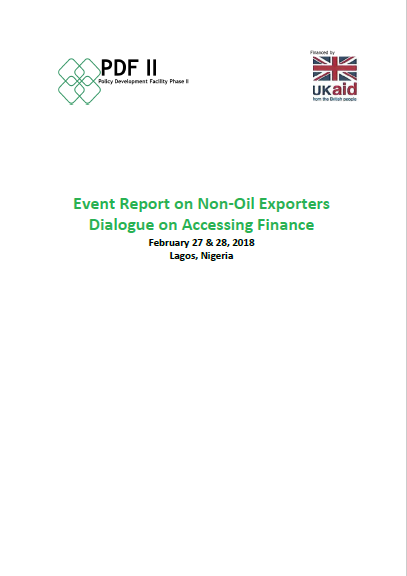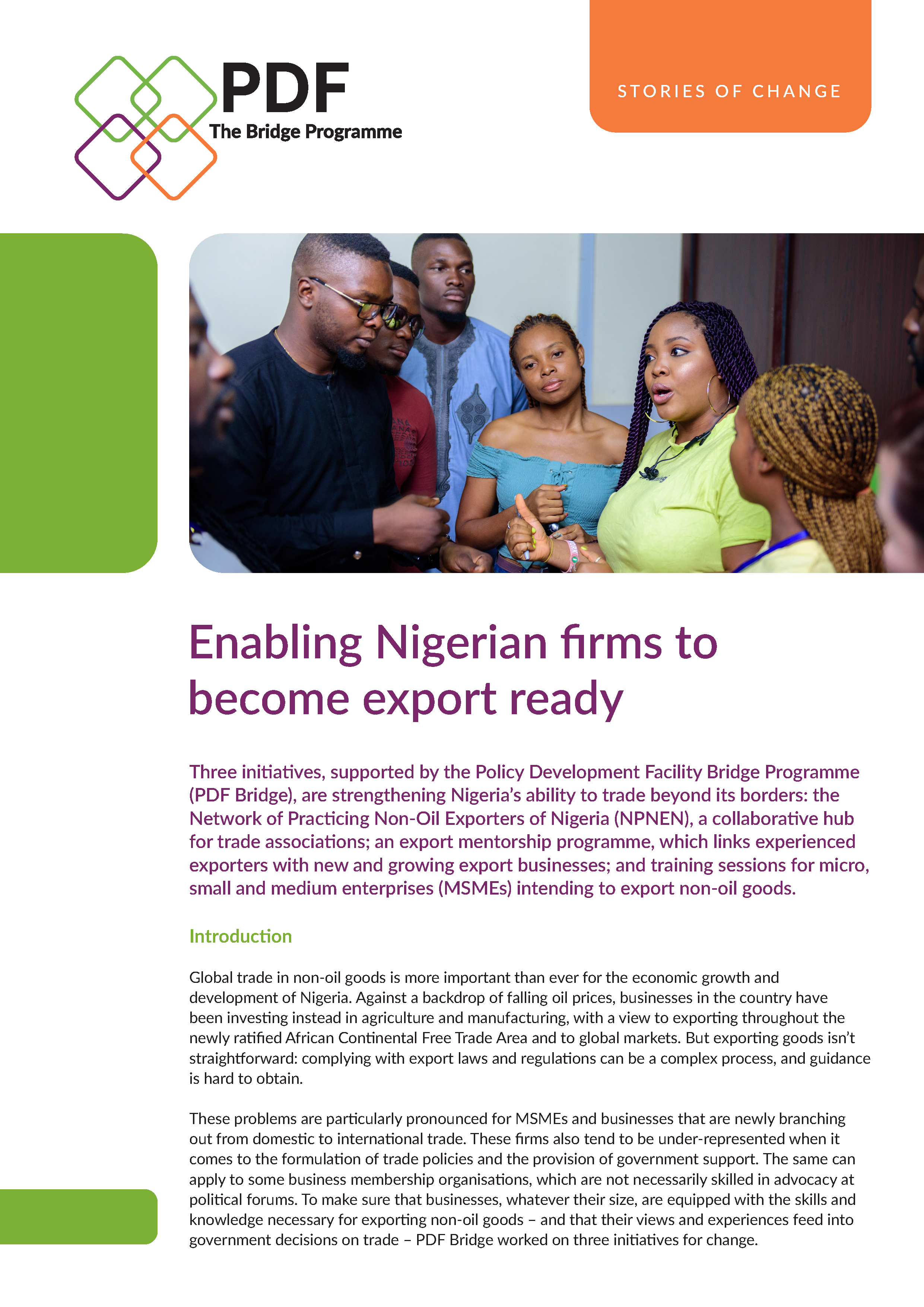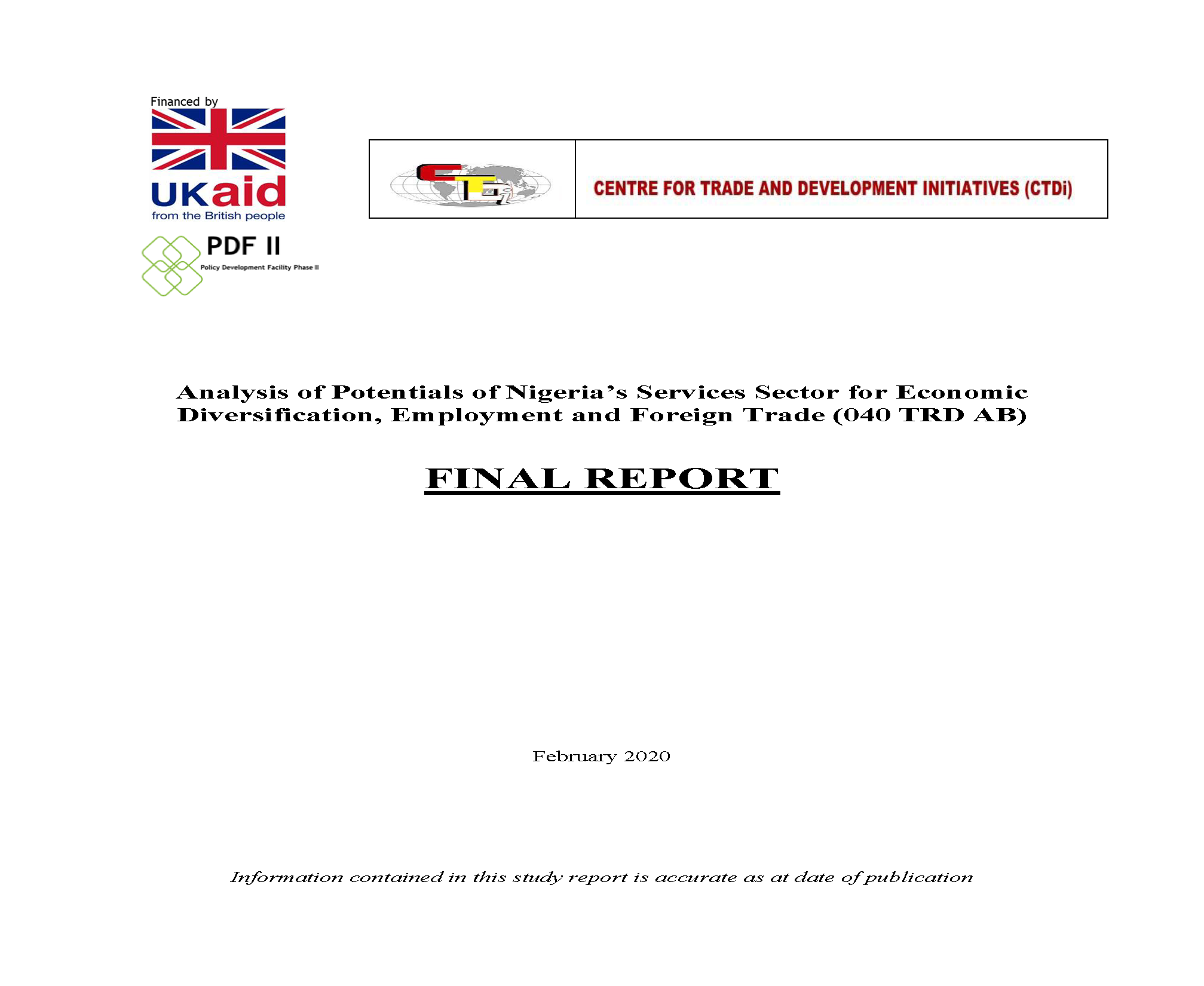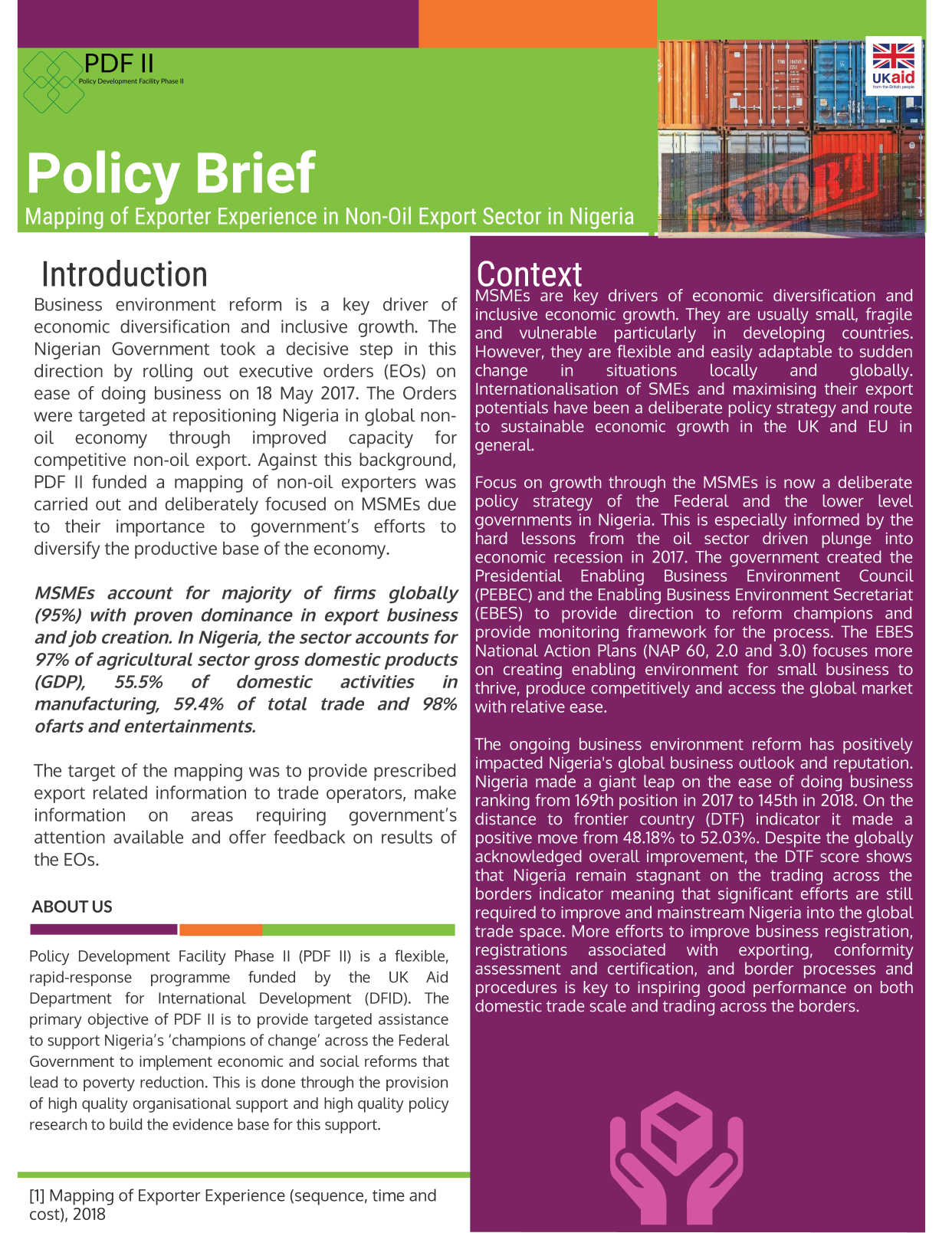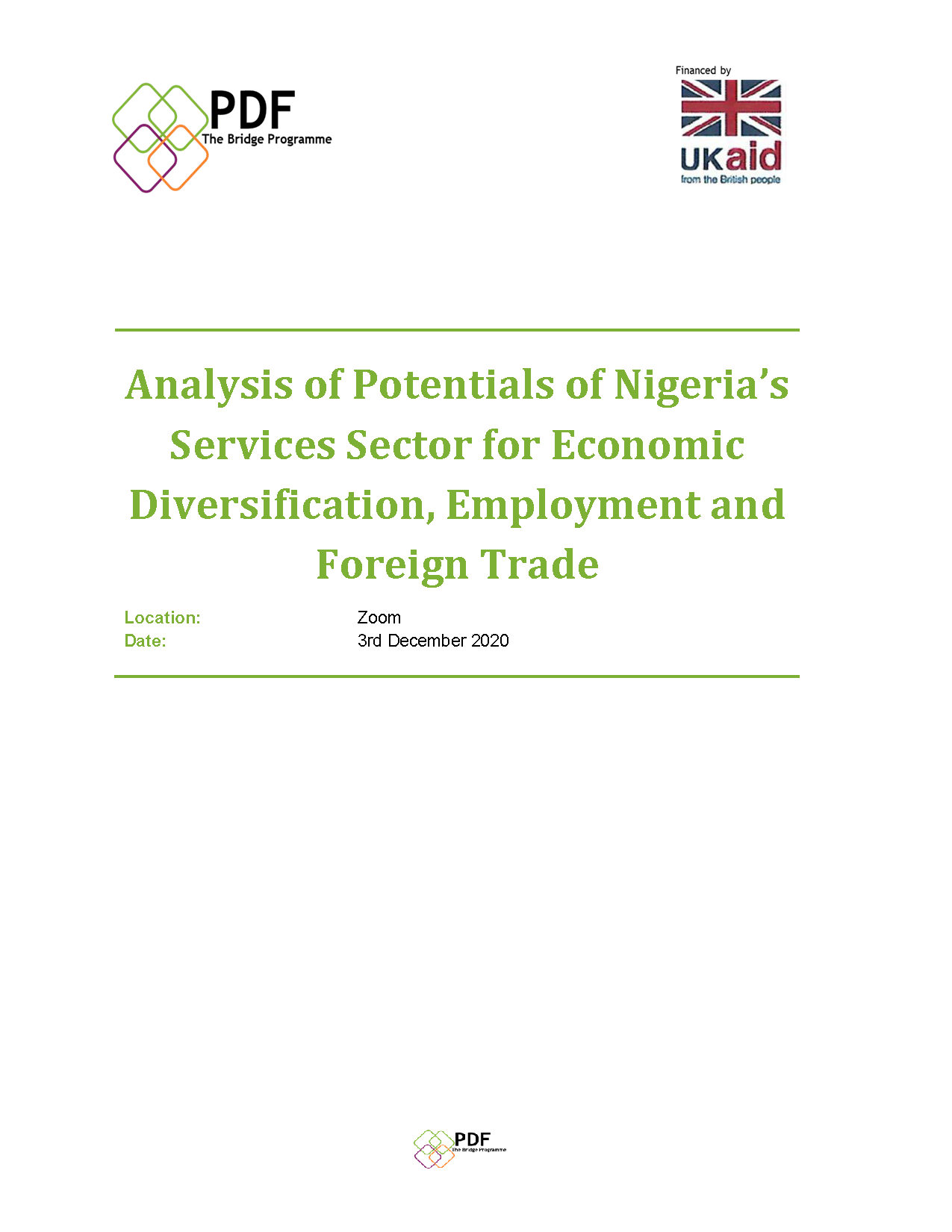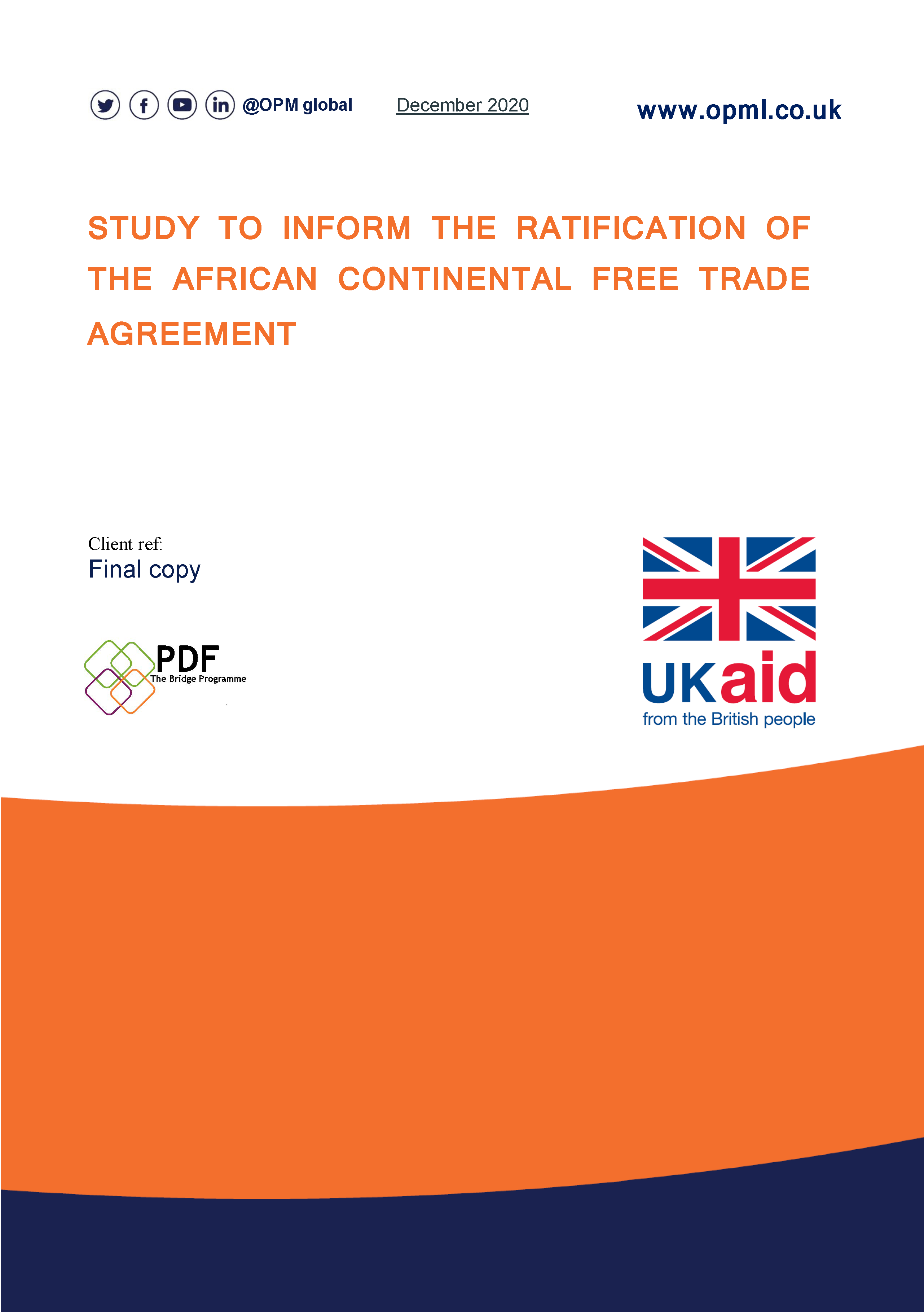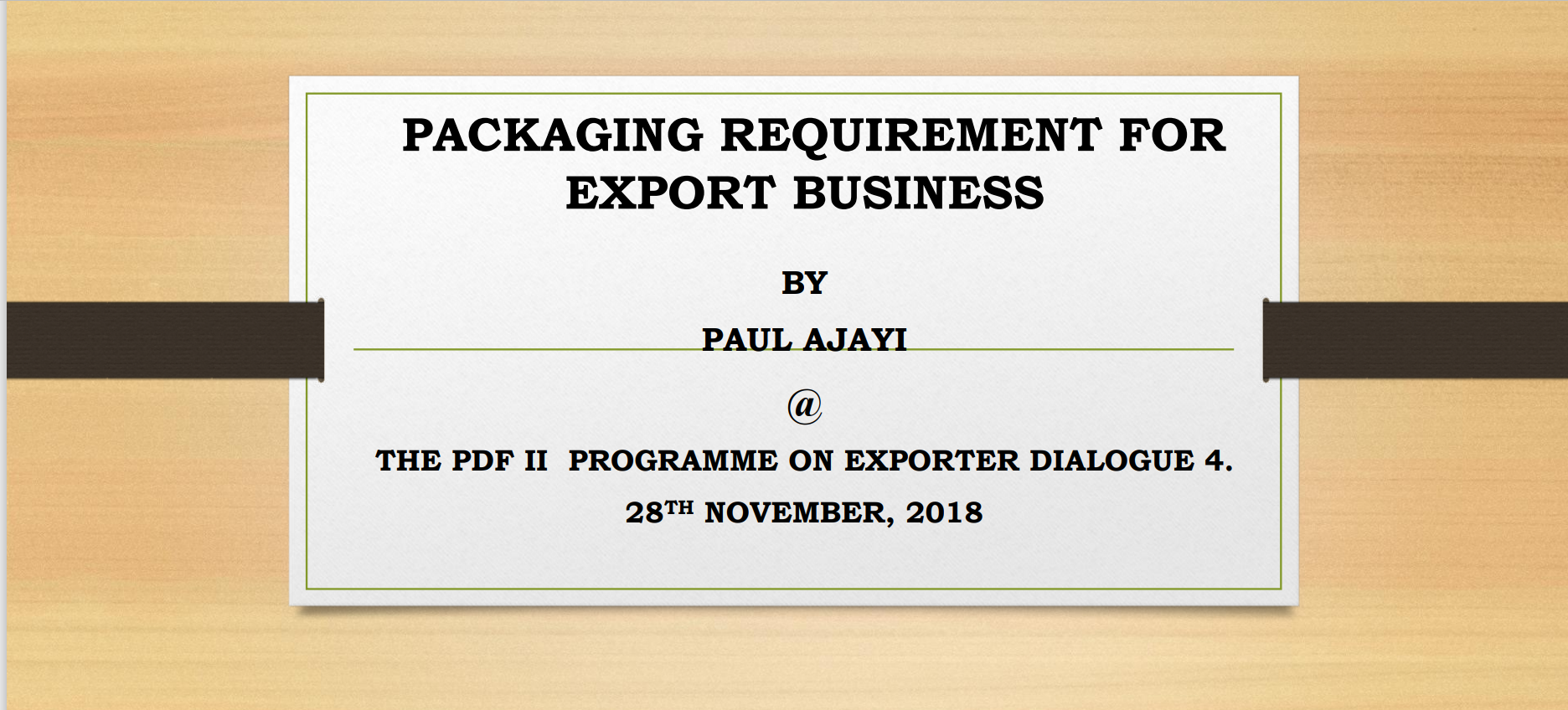Non-oil exporters dialogue on accessing finance (Forum 2)
This event report summarises the second of a series of forums aimed at improving access to finance for non-oil exporters in Nigeria. It explores the challenges and opportunities in financing exports as well as the stakeholder actions required to develop non-oil exports in Nigeria.

